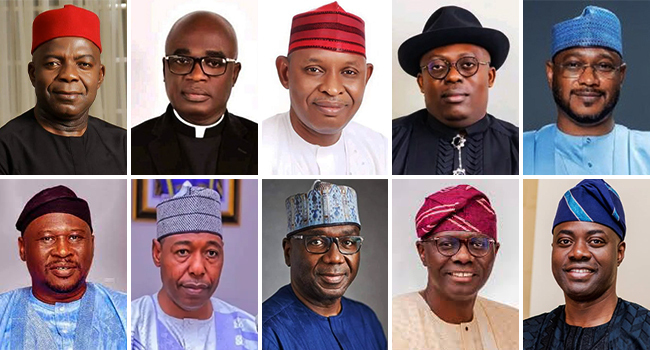Despite spending at least N21.04 billion on foreign visits over the previous three years, 14 state governments have failed to attract any sort of foreign investment in their domains. Bauchi, Bayelsa, Benue, Borno, Cross River, Ebonyi, Edo, Gombe, Imo, Jigawa, Nasarawa, Taraba, Yobe, and Zamfara are the affected states. Between 2021 and the third quarter of 2023, these states failed to attract any of the $14.85 billion in foreign investment into Nigeria.
Between 2021 and 2023, Bauchi spent N3.81bn on foreign trips without having anything to show for it. Bayelsa spent N1.99bn, Benue spent N1.33bn, Borno spent N1.73bn, Cross River spent N663.16m, Ebonyi spent N1.01bn, Edo spent N1.77bn, Gombe spent N32.09m, Imo spent N541.23m, Jigawa spent N1.10bn, Nasarawa spent N541.26m, Taraba spent N2.52bn, Yobe spent N1.24bn, and Zamfara spent N2.77bn.
The figures for foreign trips were extracted from state budget performance reports sourced from Open Nigerian States. Many of the states didn’t have their full budget performance reports with some only having for two quarters in some instances.
Kebbi did not also receive any foreign direct investments in the period under review but there was no data on the amount the state spent on foreign related trips hence its exclusion from this report.
The lack of foreign investments in these states coincides with a general fall in investments into the country due to insecurity and other issues.
The World Bank opined, “Net FDI inflows are negative, reflecting net withdrawals of equity by foreign investors. FDI and FPI flows into Nigeria do not compare favourably with similar economies of the world, reflecting difficulties with FX availability, security concerns, and other structural challenges in recent years.”
A couple of states in this report including Zamfara, Jigawa, and Nasarawa have been plagued by banditry in recent years. In Zamfara for instance, banditry has become the order of the day with almost 14 local government areas of the state occupied by bandits.
At the time of the report, more than 70 per cent of farmlands in the states were abandoned by farmers in the state due to fear of bandits’ attacks.
In 2022, the Managing Director, Zamfara State Investment Cooperation, Dr Anas Hamisu Lawal, disclosed that insecurity was responsible for the non-attraction of investments into the state.
Lawal said, “The first question they always ask is the security situation in the state.”
He added, “They are willing to invest whenever the security situation improves.”
That same year, the Benue State Commissioner for Finance, David Olofu, told The PUNCH, “It is obvious that insecurity prevented many states from attracting investors in 2021. How many investors did the Federal Government attract?
“How will investors come even when citizens are not safe? How will investors come when citizens cannot themselves invest in their place?”
In 2022, Edo State Governor, Mr Godwin Obaseki, said the state would prioritise technology, agriculture entertainment, and others to attract more investors into the state.
The state is yet to record any foreign investments in three years, according to data from the NBS.
In 2021, the Deputy Governor of Bayelsa State, Lawrence Ewhrudjakpo, revealed that the state governor, Douye Diri, was leveraging his foreign trip to woo investors to boost the economy of the state.
He said, “We believe that we have procedures, and the governor deserves the attention he deserves to give to investors so that investors are brought to our state as no system that is not interacting with any other system can be very effective. What makes an economy a viable economy is the external investment into the economy.”
The state has yet to record any foreign investments.
Commenting on the lack of foreign investments in these states, a professor of Economics and Public Policy at the University of Uyo, Akpan Ekpo, recently said to The PUNCH, “They are not importing capital for two reasons. First, they don’t have potential investors who will do that. Secondly, there is insecurity in the country. Those things are not fertile ground for investments.”
An ECOWAS Common Investment Market consultant, Professor Jonathan Aremu, added, “It’s simple. It’s because they don’t have attractive factors. The factors that attract foreign investment are not available in those states. One thing about investment is that it is crisis shy. Investment doesn’t go to places where there are crises. Why? Because investors want stability and predictability in their investments, particularly, having returns on their investments.”

































